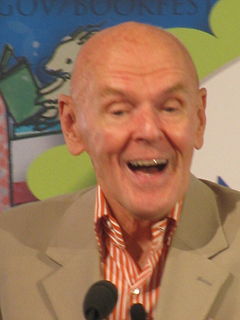A Quote by Freeman Dyson
The history of mathematics is a history of horrendously difficult
problems being solved by young people too ignorant to know that they were
impossible.
Related Quotes
September 11 We thought we'd outdistanced history Told our children it was nowhere near; Even when history struck Columbine, It didn't happen here. We took down the maps in the classroom, And when they were safely furled, We told the young what they wanted to hear, That they were immune from a menacing world. But history isn't a folded-up map, Or an unread textbook tome; Now we know history's a fireman's child Waiting at home alone.
I've heard - when I first started, people were saying, "You know if it ends up being Trump against [Hillary] Clinton, it's going to be the highest-rated debate in the history of television - or, show in the history of television. And they also said something else. It'll probably be the greatest voter turnout in the history of this country. That could very well be.
If, in schools, we keep teaching that history is divided into American history and Chinese history and Russian history and Australian history, we're teaching kids that they are divided into tribes. And we're failing to teach them that we also, as human beings, share problems that we need to work together with.
I can only think that the book is read because it deals with the difficulties of schooling, which do not change. Please note: the difficulties, not the problems. Problems are solved or disappear with the revolving times. Difficulities remain. It will always be difficult to teach well, to learn accurately; to read, write, and count readily and competently; to acquire a sense of history and start one's education or anothers.





































